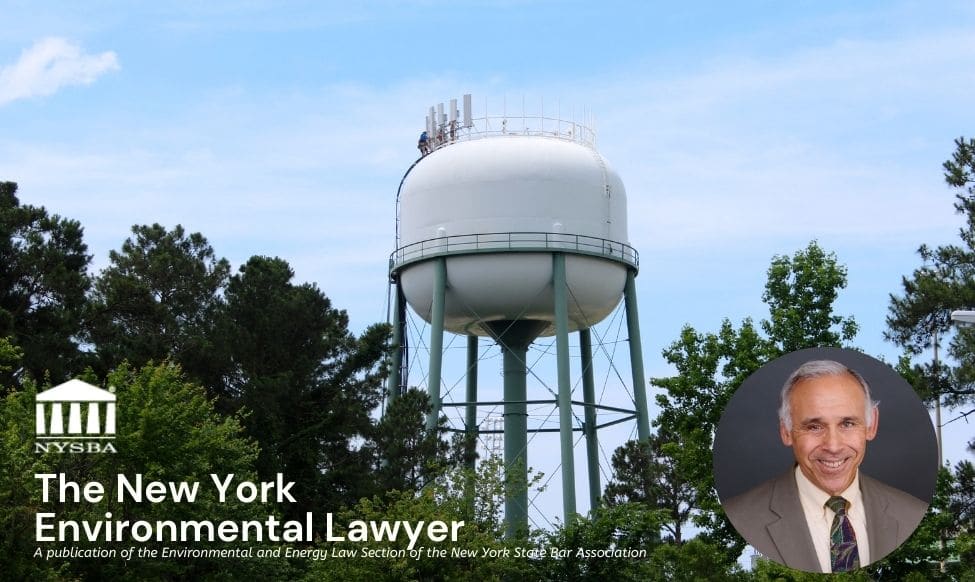This article by Frederick Eisenbud, head of CMM’s Environmental & Land Use practice, was originally published in The New York Environmental Lawyer (2021 Vol 41, No. 1), a publication of the Environmental and Energy Section of the New York State Bar Association, under the title, “A Better Solution Was in Plain Sight: Amend CPLR 214-c to Conform to the Requirements of CERCLA’s Federally Required Commencement Date.”
The Virtual Elimination of the Statute of Limitations Applicable to Damage Claims by Public Water Providers by the Legislature Will Cause More Harm Than Good – a Better Solution Was in Plain Sight*
I. Introduction
On November 4, 2019, Governor Andrew Cuomo signed into law New York Civil Practice Law and Rules (CPLR) 214-h, which appears to provide an open-ended statute of limitations for providers of public water claiming injury to their water source from contamination.1 This article (1) outlines the scope of CPLR 214-c which was enacted in 1986, and how it was applied to water suppliers prior to the adoption of CPLR 214-h; (2) outlines New York State Department of Health (DOH) regulations applicable to water providers and how they impact the running of the applicable statute of limitations; (3) shows that, pursuant to CPLR 214-c, DOH limits for contaminants in potable water do not have to be exceeded in order for the CPLR 214-c statute of limitations to be triggered; (4) discusses the expanded statute of limitations for water suppliers created by CPLR 214-h; (5) analyzes whether CPLR 214-h is to be retroactively applied and if it is, whether it will apply if the statute of limitations in CPLR 214-c otherwise would bar a claim prior to the adoption of CPLR 214-h; (6) argues that the provisions of CPLR 214-h which provide virtually open-ended time for water suppliers to commence an action for damages arising from contamination are inconsistent with sound public policy and may have unintentional adverse consequences for water purveyors; (7) concludes that CPLR 214-h should be rescinded and CPLR 214-c amended to provide a proper balance of rights that will further the goal of permitting water districts to recover their costs from responsible parties without undermining the purpose of having a statute of limitations; and (8) provides, as an Appendix, a proposed amendment to CPLR 214-c that will address the concerns of water providers without the potential adverse impacts created by CPLR 214-h.

